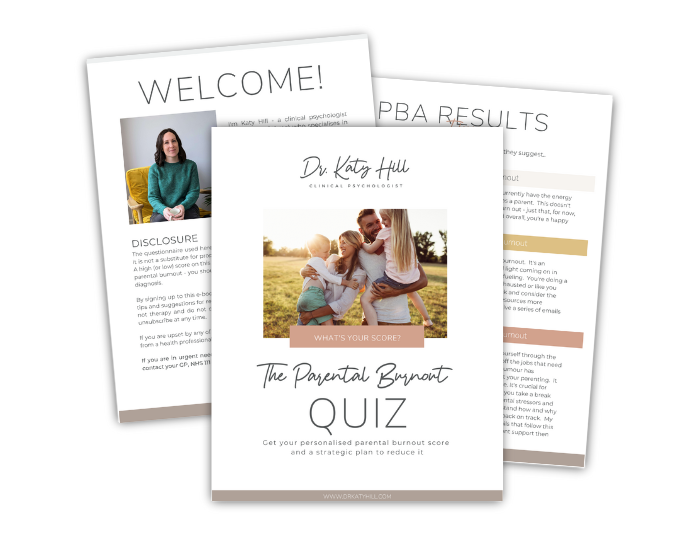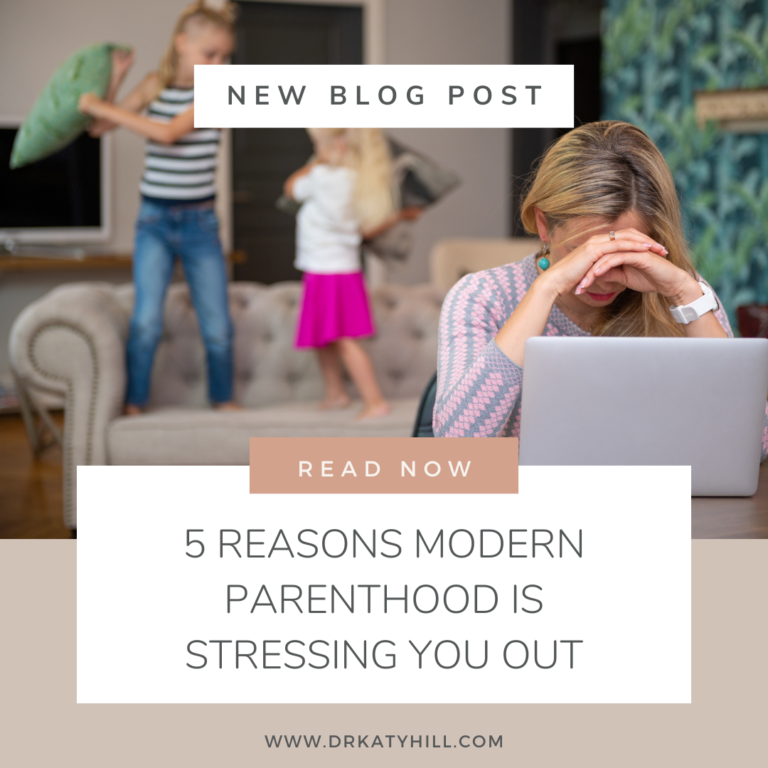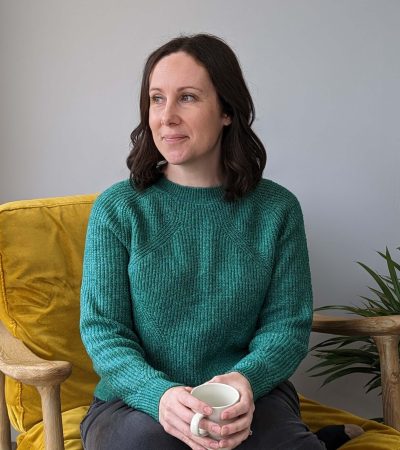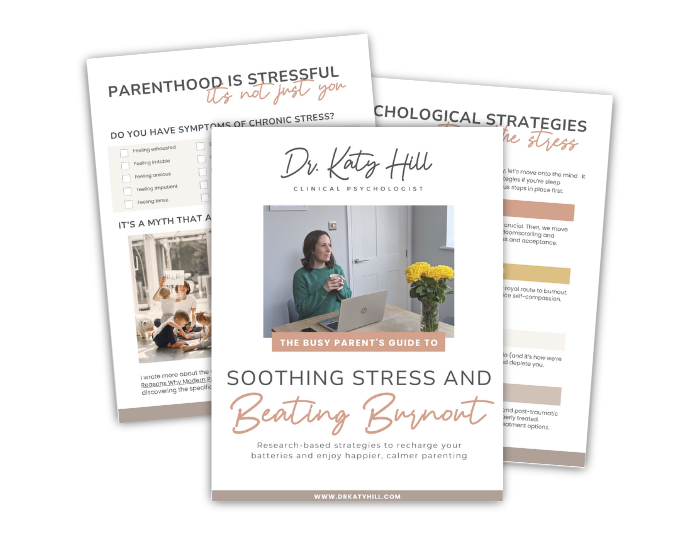Now, if your grandparents or great-grandparents read the title of this blog I’m sure they’d tell you that parenthood was no picnic in their day. And they’d be absolutely right. There’s never been a time in history when parenthood was easy. Every parent who ever lived experienced parental stress.
And, despite what some parenting experts would have you believe, there really is no way to make it ‘easy’.
Undoubtedly, most of us have much higher living standards than most parents throughout history; but parenting stress isn’t just about resources – it’s also about the pressures on parents.
I’d argue that there are many pressures that modern parents face that just did not exist for our grandparents or great-grandparents.
There have been some huge societal changes in just the last couple of generations. These changes have, on the whole, made our lives better. But they have also come with the unintended consequence of putting more pressure on parents and increasing parental stress.
Let’s have a look..
1) YOU MOST LIKELY CHOSE TO HAVE CHILDREN
For centuries, it was just the done thing that you would get married and have a bunch of children. Couples wouldn’t necessarily plan how many children they wanted or their preferred age gaps between them etc. Now we have contraception and fertility treatments we have some control over if and when we have children.
It’s more likely these days that babies are wanted and planned. For 1 in 9 couples, those babies are the long awaited, much desired result of an often difficult and stressful assisted reproduction journey.
We also have a much lower child mortality rate these days so we tend to have much smaller families. We’re able to put a lot of focus on (and resources into) the one or two much wanted children that we have.
The flip side of children being so longed for can be that when parents hit a rough patch in parenthood (as we all will do), they can feel like they have no right to complain. It can feel like gratitude is the only acceptable parental emotion.
Parents who long for, and plan for a child, can have an idealised view of who that child will be. Parents can feel shock, disappointment, resentment and grief when the child they actually have doesn’t resemble the the child of their fantasies. These difficult feelings can be complicated further by shame and guilt as we’re often told parental love should be unconditional.
2) YOU'RE EXPECTED TO 'HAVE IT ALL'
Traditionally, it was clear that when a couple had children, each partner would take on a specific role according to their gender. The woman would be in charge of looking after the children and the household; the man’s place was be at work.
Thankfully, that’s not the expectation today. Most women want to have an occupation outside of housekeeping and childrearing and most men want to invest in their families as well as their careers.
The evolution of gender roles was much needed but it’s also added extra pressure. Now, both men and women are expected to be fully committed to both work and their families.
Arguably, the pressure to ‘have it all’ is stronger for women. As the phrase goes “women are expected to work like they’re not mothers and mother like they don’t have to work”. And, for those of us (again, mostly women) who take time out of the workforce to raise children, there can be the expectation that we’ll ‘compensate’ by becoming ‘perfect parents’.
Many of us trying to figure out how to juggle our work and family commitments and work together as a co-parenting team. We’re often trying to manage this new type of parental stress without having role models to look up to. Modern men especially have few role models for how to be the type of emotionally intelligent and involved father that is expected today. That simply wasn’t an expectation on the generations of men before them.

The Parental Burnout Quiz
Curious what your own parental burnout score is? Download the free assessment and get your score – plus expert tips on how to reduce it.
3) THE RISE OF PARENTING EXPERTS
The 20th century saw the start and prolific growth of scientific research on child development and psychology. We now understand much more about how children develop and what they need to thrive. There is so much excellent research on attachment, positive parenting styles etc.
However, most parents haven’t read the research itself and so rely on what they hear from others. Parenting experts (with varying credentials) abound now and some cherry pick this research or boil it down into simplistic concepts. Concepts which, when presented without nuance, can feel like a prescription for ‘perfect parenting’.
Parenting becomes a high stakes activity that you can get wrong in a million ways.
Different ‘experts’ can have slightly (or wholly) different perspectives. We can find ourselves caught between an increasing number of brand named parenting movements with prescriptive rules for ‘good parenting’. What’s the ‘right’ way? Is it ‘attachment parenting’, ‘gentle parenting’, ‘conscious parenting’, ‘free range parenting’ etc.
The idea of paying such close attention to your parenting style would have just been completely alien to our grandparents.
It can all get a bit tribal and judgemental. You can feel like you might be screwing your child up if you don’t pick and stick to the ‘correct’ method to help your child feed, sleep and play.
Historically, you might have felt you should conform to the parenting culture of your village. Now, you literally have a world of contradictory parenting experts and opinionated others in your phone, which massively increases parental stress.
4) THE INCREASED AWARENESS OF POTENTIAL HARM TO CHILDREN
As we learned more and more about child psychology and development, it became both a social and legal imperative to keep your children safe from harm and to promote their wellbeing.
Parents are now expected to protect their children in ways that were not expected historically. If you’d been a parent a 150 years ago, you would be expected to keep your children alive. That’s it. Children would’ve spent their days working in the fields or down the mines.
Society wasn’t concerned about the happiness of children, their access to education or their right to protection from maltreatment until relatively recently in human history.
I’ve even noticed a shift in perception of what constitutes harm to children just in my lifetime. I remember smacking being quite a normal parental practice when I was growing up in the 1980s but it’s now illegal in many countries. Corporal punishment wasn’t made illegal in state schools in the UK until 1986 (and not until 1998 in some private schools in England and Wales, or 2000 in Scotland!).
And, as children of the 1980s, we spent a lot of time unsupervised. Parents weren’t expected to monitor or entertain their children in the way we are today. As a primary school kid, I would play out all day with my friends and our parents didn’t know where we were, we would walk to school alone, go to the shops to run errands for our parents etc. My mum remembers babies frequently being left outside shops in prams.
What used to be seen as normal behaviour towards children would now be judged as abusive and/or neglectful. This adds to the pressure modern parents feel to get it right.
There are also potential dangers that modern parents have to deal with that weren’t even a thing for their parents – protecting your child from online harm is a new type of parental stress. Who knows how to confidently manage their children’s screen time, internet and social media use when these things were not even part of their own childhood?
5) CHanging societal values
Western societies have become increasingly neoliberal in the last two generations with a strong emphasis on individualism, personal performance and competition. Researchers believe this has fuelled a significant increase in perfectionism over the same time period.
None of these values are conducive to raising children without parental stress.
It’s such a set up – young people are being brought up to value their own independence, achievement, productivity and competition. But these values are in direct opposition to the ones that society says they should demonstrate as soon as they become parents. So, these achievement-driven, independent adults must suddenly switch to being other-orientated, fully available and attentive to their children’s needs.
Parenthood can also become competitive in a neoliberal society – your child becomes a product; a reflection of your efforts and so both you and your child must be ‘perfect’. We know that parental perfectionism is a risk factor for parental burnout.
Research shows that individualistic societies have far higher rates of parental burnout than collectivist societies.
I’d suggest this is both because of the ideological problems above but also because of practical differences. Parents who have grown up in collectivist societies will have lots of experience of what child rearing constitutes. They will have more realistic expectations and practical child-rearing skills. They also have the necessary family and community support around them while they raise their own children.
But how many of us brought up in isolated nuclear families in individualistic countries had much experience of babies before we had our own? How many of us have the village that we’re so often told is essential to raise a child?
Some of your parental stress is caused by the society you're living in
Honestly, I feel kind of nervous publishing a blog like this because there’s always someone on the internet ready to wilfully misunderstand your point.
For the avoidance of doubt, I’m not saying parenthood was easy for other generations. And I’m not saying that these societal changes are bad. I’m saying that they’re a double-edged sword; that these changes have had the unintended effect of increasing pressure on parents.
Parenting feels so hard for lots of different reasons and one of them is that there are societal pressures on you that didn’t exist for previous generations of parents.
You’re being asked to do something that is objectively very hard (raise a child to adulthood), in a society that has evolved in certain ways that are adding pressure to your experience.
You may not be worried about famine or war or disease in the way that your great-grandparents might’ve been. And yes, you have a washing machine, takeaways and the internet. But you’re being exposed to a lot of prescriptive societal messages about parental perfectionism that did not exist for your grandparents.
It’s no wonder you feel pressured and overwhelmed by it at times.
If you’d like to hear more of my thoughts on parental stress and burnout then read through my other blogs or come and connect with me on social media. I’d love to hear your thoughts about the pressures of modern parenthood.
If you’re feeling stressed out and would like to work with me to reduce your stress levels and become a happier, calmer parent then please do get in touch. Hit the button below to be taken to my contact page and book a free 15min consultation call with me. I’d love to hear from you.








